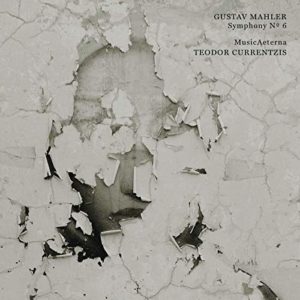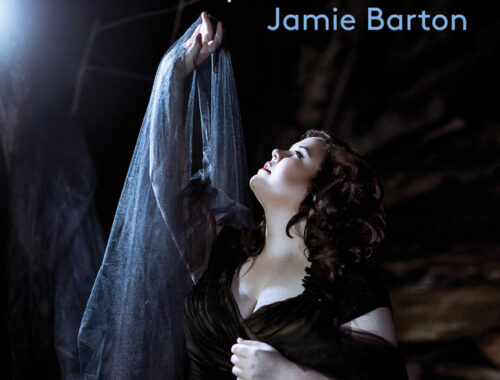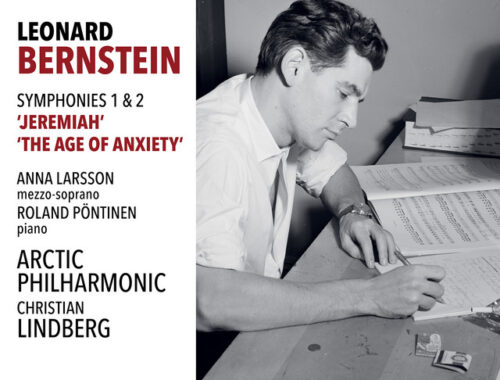GRAMOPHONE Review: Mahler Symphony No. 6 – MusicAeterna/Currentzis
 Anyone who thrilled (as I did) to Teodor Currentzis’ Tchaikovsky Pathetique will find distinct parallels here. The impulse, the imperative, of this Mahler 6 is extraordinary – a headlong ride to the abyss with every rhythm and counter-rhythm fiercely articulated, every accent, every slicing sforzando, grimly incisive. Inner parts pull focus as they have rarely done so before surprising even those of us for whom the piece is frighteningly familiar.
Anyone who thrilled (as I did) to Teodor Currentzis’ Tchaikovsky Pathetique will find distinct parallels here. The impulse, the imperative, of this Mahler 6 is extraordinary – a headlong ride to the abyss with every rhythm and counter-rhythm fiercely articulated, every accent, every slicing sforzando, grimly incisive. Inner parts pull focus as they have rarely done so before surprising even those of us for whom the piece is frighteningly familiar.
I expect you can sense that there is a ‘but’ coming – and for a seasoned Mahlerian like myself that ‘but’ was signalled right from the very opening. The soon to be inexorable march rhythm is for me too light on its feet. There is trenchancy for sure – I would not contest that – but there is too much that is upbeat about its tone given what is soon to come. Then again the quiet transition into the second subject – ‘Alma’s theme’ – is really telling and the theme itself possessed of a vaulting but clearly misplaced optimism. I love, too, Currentzis’ instinctive way with the rubato, the way he lovingly opens out the reprise with its descanting horns. The departure to higher regions at the heart of the movement is magical, too, cow bells and celeste and the conductor’s expansive nose for atmosphere making the whole episode as eerie as it is beautiful.
We know now, of course, of Currentzis’ innate sense of drama in all things – and the way he hurtles with such inevitability towards that mighty appogiatura in the coda is absolutely thrilling. But better yet is his decision to adhere to Mahler’s original order of movements placing the scherzo second (pace the revisionists, say I) and furthermore underlining his conviction by barely pausing for breath following the major key assertion of the first movement coda. The scherzo follows virtually attacca thus making the point more emphatically than I’ve ever heard it made before that the scherzo is effectively the distorted mirror-image of the first movement. The plunge back to the minor key is truly a volte-face.
This scherzo’s grotesque ländler with its yelping horns and growling tuba and basses is something of a Halloween hop, the exaggerations writ large, the tone spooky and then some. Then the Andante’s remote beauty makes sense as something more than just a soft-option contrast to the first movement. There’s a real ache to Currentzis’ reading of it – deeply melancholic in the Tchaikovskian sense – with all the plangent wind solos making their mark.
The playing of Currentzis’ heavily augmented MusicAeterna is pretty hair-raising throughout and that fantastical opening to the cosmic finale is weirdly transparent – a kind of no man’s land between Mahler and the jaws of hell. In this his most personal crisis Currentzis’ headlong approach is unforgiving and feverishly exciting (just listen to those galloping horns in the final assault) but returning to my big caveat at the start of this review there is a very real danger of the rhythmic excitement, the thrills and spills of this reading, spilling over into something that is more exhilarating than it is threatening. What is missing here – and all my instincts are screaming it – is that unmistakable but indefinable Mahlerian ballast – the epic depth and breadth of it all. The oppressiveness of this final movement doesn’t really assert itself here until the final threnody of trombones – still the most tragic sound in early 20th century music.
But like every Currentzis recording to date this one will divide opinions. I thrilled to it but I wasn’t driven to despair by it.
You May Also Like

GRAMOPHONE Review: Heggie Unexpected Shadows – Jamie Barton, Matt Haimovitz & Jake Heggie
11/11/2020
A Conversation With VASILY PETRENKO: Shostakovich Symphony No.13 “Babi Yar”
02/09/2014

